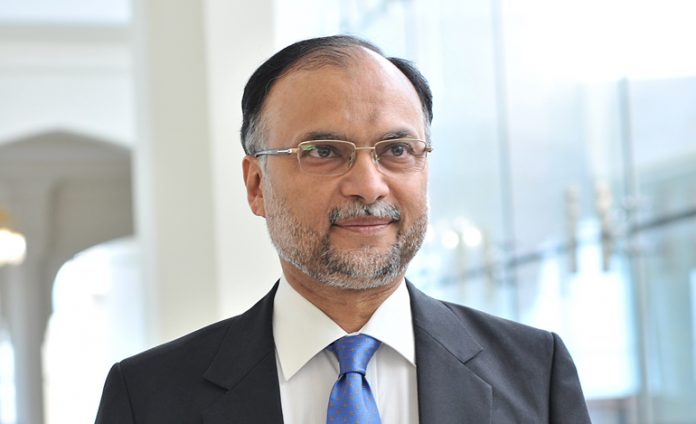Minister for Planning, Development, and Special Initiatives, Ahsan Iqbal, outlined bold economic and digital reforms at the annual Pakistan Society of Development Economists (PSDE) conference on April 15.
Calling for a shift toward sustainable growth, Iqbal emphasized the importance of political stability, consistent policies, and an enabling environment to ensure long-term progress. The conference, themed “URAAN Pakistan: Growth Through Digital Transformation,” served as a platform for unveiling the government’s vision for economic and digital change.
Iqbal stressed that Pakistan’s issues stem from mismanagement rather than underdevelopment. “URAAN Pakistan is not just a slogan, but a commitment to break free from cycles of low growth and low ambition,” he said, presenting the initiative as a blueprint for national transformation.
The vision includes enhancing exports, raising them to over $60 billion by 2029, and positioning Pakistan as a key player in regional and global trade.
The minister highlighted the crucial role of economists in shaping national development strategies and reiterated the need for an export-driven economy.
He emphasized that no country can sustain growth without boosting foreign exchange earnings. Pakistan’s shift away from reliance on imports and consumption toward export-led growth is vital for long-term prosperity.
Digital transformation was also central to Iqbal’s speech, with a focus on creating a digital ecosystem through initiatives like “e-Pakistan.” The aim is to turn Pakistan into a regional hub for IT, fintech, agritech, and green technology, all while generating jobs and attracting investments.
He noted that Pakistan holds significant potential in renewable energy, with the country set to unlock up to 40 gigawatts of solar and wind energy by 2030.
Addressing the climate crisis, Iqbal outlined the government’s resilience strategies, such as the Climate Resilient Recovery Framework and the Living Indus Initiative, aimed at restoring ecological balance in the Indus Basin.
He also reiterated the need for long-term planning, with a vision of a $1 trillion economy by 2035.
“The time for reflection is over. It’s time to act,” Iqbal concluded, urging Pakistan to embrace digital speed and innovation to secure its place among the world’s leading economies.




